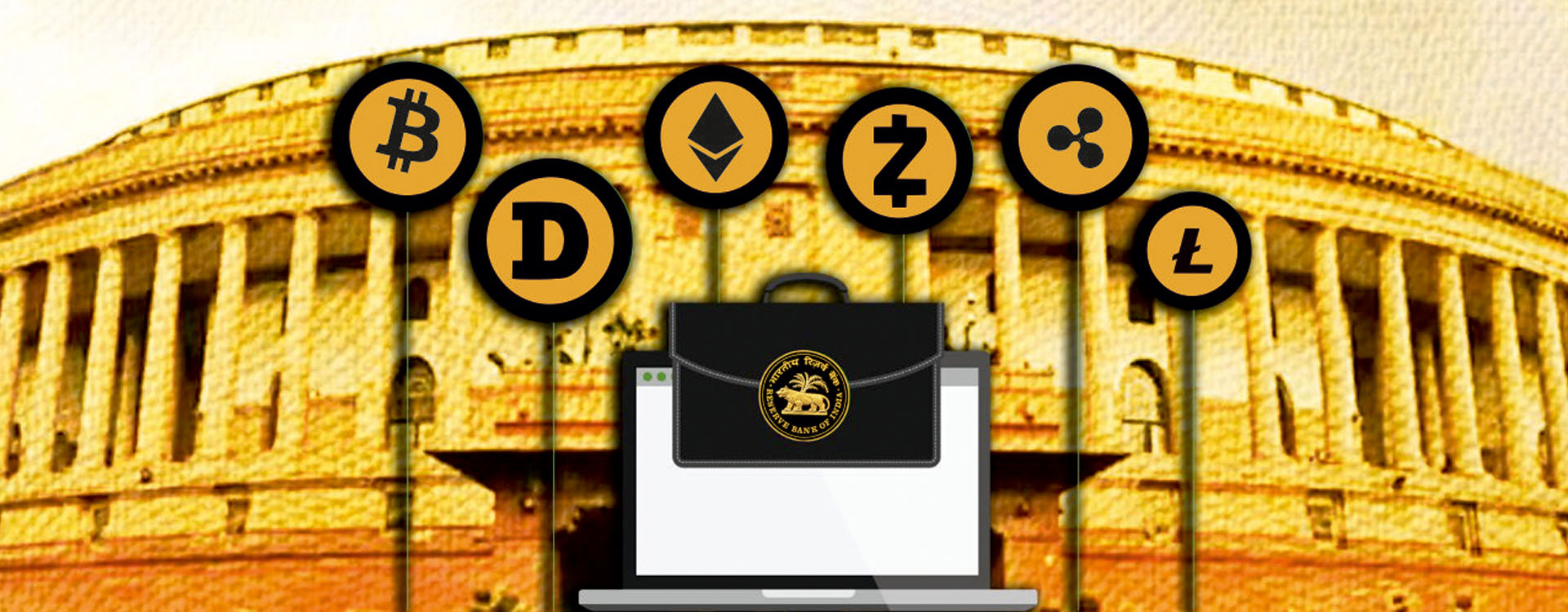A cryptocurrency is a digital currency that can be used to buy goods and services, but uses an online ledger with strong cryptography to secure online transactions. Much of the interest in these unregulated currencies is to trade for profit, with speculators at times driving prices skyward.
As India witnesses a surge in the number of cryptocurrency investors and in trading volumes, the Central government has decided to bring a new bill on cryptocurrencies – The Cryptocurrency and Regulation of Official Digital Currency Bill, 2021 – in Budget 2021. Finance Minister Nirmala Sitharaman has said that an inter ministerial committee (IMC) has suggested a ban on private cryptocurrencies in India, like Bitcoin, in India. The committee has pitched for the introduction of an official digital currency that will be appropriately regulated by the Reserve Bank of India.
A high-level Inter-Ministerial Committee (IMC) was constituted under the Chairmanship of Secretary (Economic Affairs) to study the issues related to virtual currencies and propose specific actions. The detailed text of the bill has not been released in the public domain so far.
Key features of the Cryptocurrency Bill 2021
Ban on all private cryptocurrency
The committee has suggested a ban on private cryptocurrencies, like Bitcoin or Ethereum. This might cause a loss to the existing crypto investors in India. However, speaking from a legal point of view, even if the ban is imposed, the crypto holders will still have the option of international exchanges to trade their holdings and there will be no loss of money. Therefore, it would be wise to trade the crypto holdings as soon as possible to prepare for the eventuality of the ban. Also, what is ‘private cryptocurrency’ remains unclear for now as the draft has not been made public.
Introduction of central bank-backed digital currency (CBDC)
The committee has pitched for the introduction of an official digital currency, known as central bank-backed digital currency (CBDC), that will be appropriately regulated by the RBI. While China could officially roll-out its CBDC this year, other leading central banks, including the Bank of England, European Central Bank and the United States’ Federal Reserve, are also working on developing a digital currency. The RBI might also get a digital version of the Indian Rupee in sync with how other countries are trying for their own currencies.
A CBDC can take many forms such as issued on blockchain ledger like private crypto-currencies, a Demat account like in stocks, a specific payments instrument or an account based CBDC. There can be retail CBDCs which would be accessible to all types of consumers or wholesale CBDCs that are meant only for institutions.
‘‘
A high-level Inter-Ministerial Committee (IMC) was constituted under the Chairmanship of Secretary (Economic Affairs) to study the issues related to virtual currencies and propose specific actions.
Formulation of a regulatory body/framework
Reporting of sale, trade and usage of the currency to an authority would ensure the identity of participants and the amounts transacted, thereby preventing anonymity in cryptocurrency transactions. The committee has pitched for setting up a legal framework to directly regulate the currency by either RBI and Securities and Exchange Board of India (SEBI).
Digitalisation has led to rapid influx of cryptocurrency in India, especially among start-ups who have been voicing for a proper legislation regarding investment in cryptocurrencies as there is a potential for raising millions through investments made by both Indian and foreign firms.




